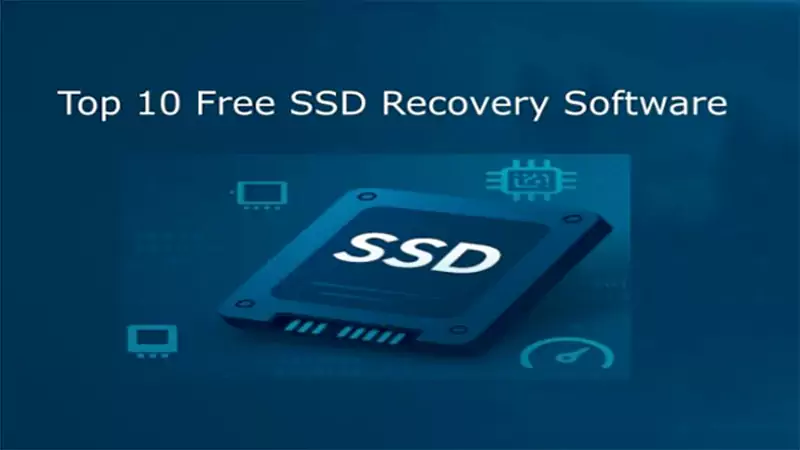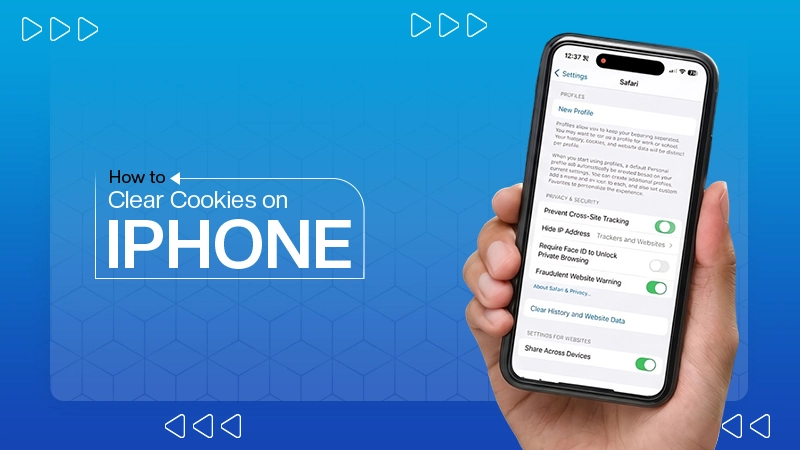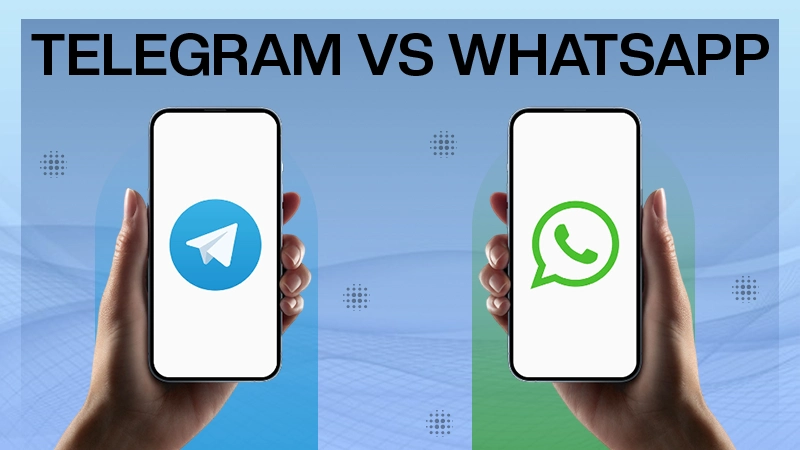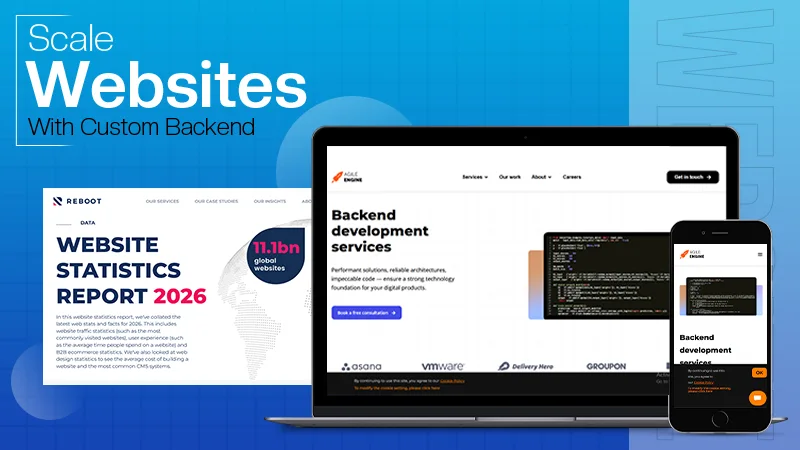For general use, Ubuntu and Mint are great. However, Fedora and Arch Linux work better for developers and advanced users.
Linux Mint vs Ubuntu: Which Linux Distro Should You Choose in 2025?
- Linux Mint vs Ubuntu: An Overview
- Similarities Between Ubuntu and Linux Mint
- Ubuntu vs Mint: User Interface and Experience
- Linux Ubuntu vs Mint: Performance and Stability
- Linux Mint vs Linux Ubuntu: Software Management
- Mint Linux vs Ubuntu: Community and Support
- Ubuntu vs Linux Mint: Security and Privacy
- Mint vs Ubuntu: Cost
- Pros and Cons of Linux Mint and Ubuntu
- Final Verdict: Ubuntu or Mint?
- Frequently Asked Questions
Linux is growing fast; the market is expected to reach $15.64 billion by 2027, and 47% of professional developers right now use the OS. Two of its most popular versions are Ubuntu and Linux Mint, and people often get confused while choosing one.
Whether you are a beginner or someone with more technical know-how, picking the right one can make a big difference. In this guide, I will compare Linux Mint vs Ubuntu and try to break down what sets them apart.
So, read this article carefully to decide which one suits your needs better in 2025.
Linux Mint vs Ubuntu: An Overview

Linux Mint and Ubuntu are closely related. Mint is built on top of Ubuntu, which in turn is based on Debian (one of the oldest Linux systems, around since 1993).
| Basis | Linux Mint | Linux Ubuntu |
| Launched | 2006 by Clement Lefebvre | 2004 by Canonical Ltd |
| Built on | Ubuntu | Debian |
| Main Goal | Easy to use, works well right out of the box | Make Linux simple and accessible for everyone |
| Updates | Twice a year | Every six months |
Ubuntu came out in 2004 and quickly became one of the most popular Linux options. It is known for being beginner-friendly and gets updates every six months.
On the other hand, Mint arrived a bit late, in 2006. It started off using Ubuntu’s KDE version and now offers a polished and easy-to-use experience right from the start. It does not require any extra setup for things like media playback.
If we talk about Linux Mint versus Ubuntu, one key difference is that Ubuntu is developed by Canonical Ltd, while Mint is more community-driven, supported by users, sponsors, and partners.
Similarities Between Ubuntu and Linux Mint
Before we start looking at the differences in this Mint OS vs Ubuntu guide, it’s worth knowing how they are similar.
- Since they both are built on Debian, they both use the same DEB packages and the APT package manager. So, installing software works almost the same way on both OS.
- Due to the shared foundation, most Ubuntu tutorials and commands will also work just fine on Mint.
- Both systems are known for being beginner-friendly. You won’t need to rely heavily on the command line to navigate through the system.
In short, whether you choose Linux Mint or Ubuntu, you will get a stable and user-friendly experience with a lot of overlap in how things work.
Ubuntu vs Mint: User Interface and Experience

Mint feels familiar, especially for those coming from Windows 10 or Windows 11. It uses desktop environments like Cinnamon, MATE, and Xfce. Cinnamon gives a modern touch while keeping things classic and easy to navigate. It is a solid pick if you want a traditional desktop layout.

Ubuntu has a cleaner and more modern look with the GNOME desktop. It is designed for a smooth and polished experience. It appeals to users who prefer simplicity, including those who are used to macOS or those who like a minimal design.
Linux Ubuntu vs Mint: Performance and Stability
Performance is an important criterion to judge Linux Mint vs Linux Ubuntu. When it comes to performance and stability, the difference is subtle on newer computers. However, on older machines, Mint tends to feel faster and more responsive.
Mint is designed to use fewer system resources, making it a great choice for older or low-spec hardware. This is especially true when using the MATE version, which is even more lightweight.
Ubuntu, while still relatively lightweight, requires a bit more power due to its GNOME desktop environment and additional features. It performs well on modern systems but may not run as smoothly on older ones.
Linux Mint vs Linux Ubuntu: Software Management
Now let’s compare the software management capabilities of Linux Mint versus Ubuntu. Mint has its own Software Manager and installs apps from its official collection. It is simple and works well, though sometimes the newest versions of the apps are not available.

Ubuntu, on the other hand, uses a centralized app store run by Canonical Ltd. It offers a wide range of apps and usually has more recent versions. However, almost everything goes through the store. Even if you install something from a downloaded file, it gets routed through the store.

This can feel a bit restrictive. But the good part is that it makes it easier to track and remove apps, since they all show up in one place. Mint does not always list apps you have installed manually, so you have to manually manage those apps.
Mint Linux vs Ubuntu: Community and Support
When it comes to community and support, Ubuntu has the advantage of scale. Backed by Canonical, it offers a mix of official resources, like detailed documentation and paid support. Plus, you get one of the largest Linux communities in the world.

Whether it’s forums, local meetups, or global events, Ubuntu users have plenty of places to ask questions and find help.

Mint relies entirely on its community, and it does a great job. While it does not have the corporate support, users enjoy a friendly, helpful atmosphere in forums, easy tutorials, and a built-in guide. It may be smaller in scale, but it often feels more personal and approachable.
Ubuntu vs Linux Mint: Security and Privacy
Linux versus Ubuntu — both offer great security, but with slightly different priorities. Mint focuses on keeping things stable and reliable. It is built on Ubuntu’s long-term support version, so you get regular updates and security patches without having to deal with too many changes.
Ubuntu is known for its strong security and privacy. It gets frequent updates and uses tools like AppArmor, which helps control what apps can access. This keeps your system protected and up to date.
Overall, both are secure, but Ubuntu is a step ahead in terms of professional security support and extra protection tools. Still, for most users, both offer a solid and secure experience.
Mint vs Ubuntu: Cost
NEWFLASH – both Ubuntu and Linux Mint are completely free to use. You can install them on as many computers as you want without paying anything for the operating system.
Canonical does offer a paid support version of Ubuntu if businesses need it, but that is completely optional. Mint, on the other hand, runs on donations. There are no paid versions or hidden charges. Everything is available to everyone for free.
Moving on, let’s discuss the pros and cons of Ubuntu versus Mint to give you a quick summary of all the information.
Pros and Cons of Linux Mint and Ubuntu
Before you finally make a call, it is important to look at the pros and cons of each Linux distro while comparing Linux Mint vs Ubuntu.
Pros and Cons of Linux Mint:
- Easy-to-use interface
- Good for older hardware
- Stable and reliable
- Simple software management
- Strong privacy focus
- Active community support
- Limited support for some apps
- Potential learning curve for newbies
- Occasional driver issues
Pros and Cons of Linux Ubuntu:
- Beginner-friendly
- Large and helpful community
- Regular updates and upgrades
- Works well across different use cases
- Heavier on system resources
- Frequent updates may annoy some users
- Less flexible for custom tweaks
Final Verdict: Ubuntu or Mint?
I have used both OS, and it comes down to what you prefer. If you like a classic, easy-to-use interface with a stable experience, Mint is a great choice.
But if you are into a more modern look and regular updates backed by a big community, Ubuntu might fit your needs better. So, it completely depends on your preference; otherwise, both are reliable and capable enough for experienced users too.
Frequently Asked Questions
Which is the best Linux to use?
Do Ubuntu programs work on Mint?
Yes, as Mint is based on Ubuntu, most of its programs work just fine in Linux Mint.
Ubuntu vs Mint vs Debian, which one is better?
It depends on your preferences and requirements. Debian is known for stability and security, Ubuntu is more user-friendly with good commercial support, and Mint focuses on ease of use for new users.
Is Mint faster than Ubuntu?
Yes, you can feel a subtle difference in speed and performance. However, on older hardware, you can see a decent difference in the speed of Mint and Ubuntu.
Which Mint version is best?
Cinnamon edition is one of the most popular versions of Mint because of its slick, beautiful design and new additional features.
If you are a part of any business, you might have attended meetings. And in case you were connected to…
SSD data recovery software can retrieve data that has been deleted, damaged, or otherwise rendered inaccessible from the SSD hard…
How can I improve the performance and grow my business? My team is already occupied with several projects, how do…
It feels very frustrating to lose all your digital data due to just one panic mistake of selecting a password…
Special Purpose Vehicles (SPVs) are a type of legally structured company. They are created by parent companies, usually with temporary…
Web cache and cookies make browsing faster by saving logins, settings, and site data. But over time, they can slow…
Finding the best tools for your company feels like a big job. You need systems that actually help your team…
In the digital age, instant messaging apps have become an essential part of our daily communication. Whether for personal use,…
Are you surfing all over the internet to figure out how to make your website scale? If the answer is…









